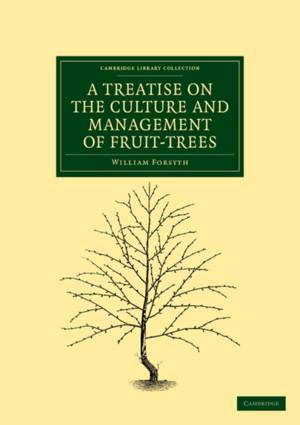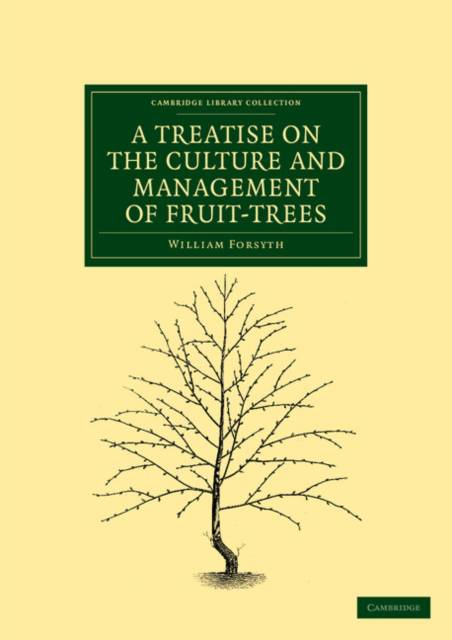
Je cadeautjes zeker op tijd in huis hebben voor de feestdagen? Kom langs in onze winkels en vind het perfecte geschenk!
- Afhalen na 1 uur in een winkel met voorraad
- Gratis thuislevering in België vanaf € 30
- Ruim aanbod met 7 miljoen producten
Je cadeautjes zeker op tijd in huis hebben voor de feestdagen? Kom langs in onze winkels en vind het perfecte geschenk!
- Afhalen na 1 uur in een winkel met voorraad
- Gratis thuislevering in België vanaf € 30
- Ruim aanbod met 7 miljoen producten
Zoeken
A Treatise on the Culture and Management of Fruit-Trees
In Which a New Method of Pruning and Training Is Fully Described
William Forsyth
€ 117,95
+ 235 punten
Omschrijving
In this work, first published in 1802 and followed by many subsequent editions, the famous horticulturalist William Forsyth (c. 1737-1804) gives an exhaustive guide to the cultivation of fruit trees and advises on pests and diseases. Forsyth was appointed superintendent of the Royal Gardens of St James and Kensington in 1784, and was also one of the founders of the (now Royal) Horticultural Society. The work is divided into two parts: in the first, various kinds of fruit trees, including soft fruit and nuts, are described in detail. Forsyth explains how to plant and prune them and gives advice on harvesting and storing the produce. In the short second part, Forsyth discusses the need for better care of both fruit and forest trees (good-quality timber being needed especially in time of war), and advocates a 'Composition' of his own invention for improving the health of diseased and damaged trees.
Specificaties
Betrokkenen
- Auteur(s):
- Uitgeverij:
Inhoud
- Aantal bladzijden:
- 420
- Taal:
- Engels
- Reeks:
Eigenschappen
- Productcode (EAN):
- 9781108037471
- Verschijningsdatum:
- 3/11/2011
- Uitvoering:
- Paperback
- Formaat:
- Trade paperback (VS)
- Afmetingen:
- 210 mm x 297 mm
- Gewicht:
- 1002 g

Alleen bij Standaard Boekhandel
+ 235 punten op je klantenkaart van Standaard Boekhandel
Beoordelingen
We publiceren alleen reviews die voldoen aan de voorwaarden voor reviews. Bekijk onze voorwaarden voor reviews.









